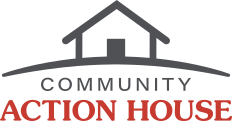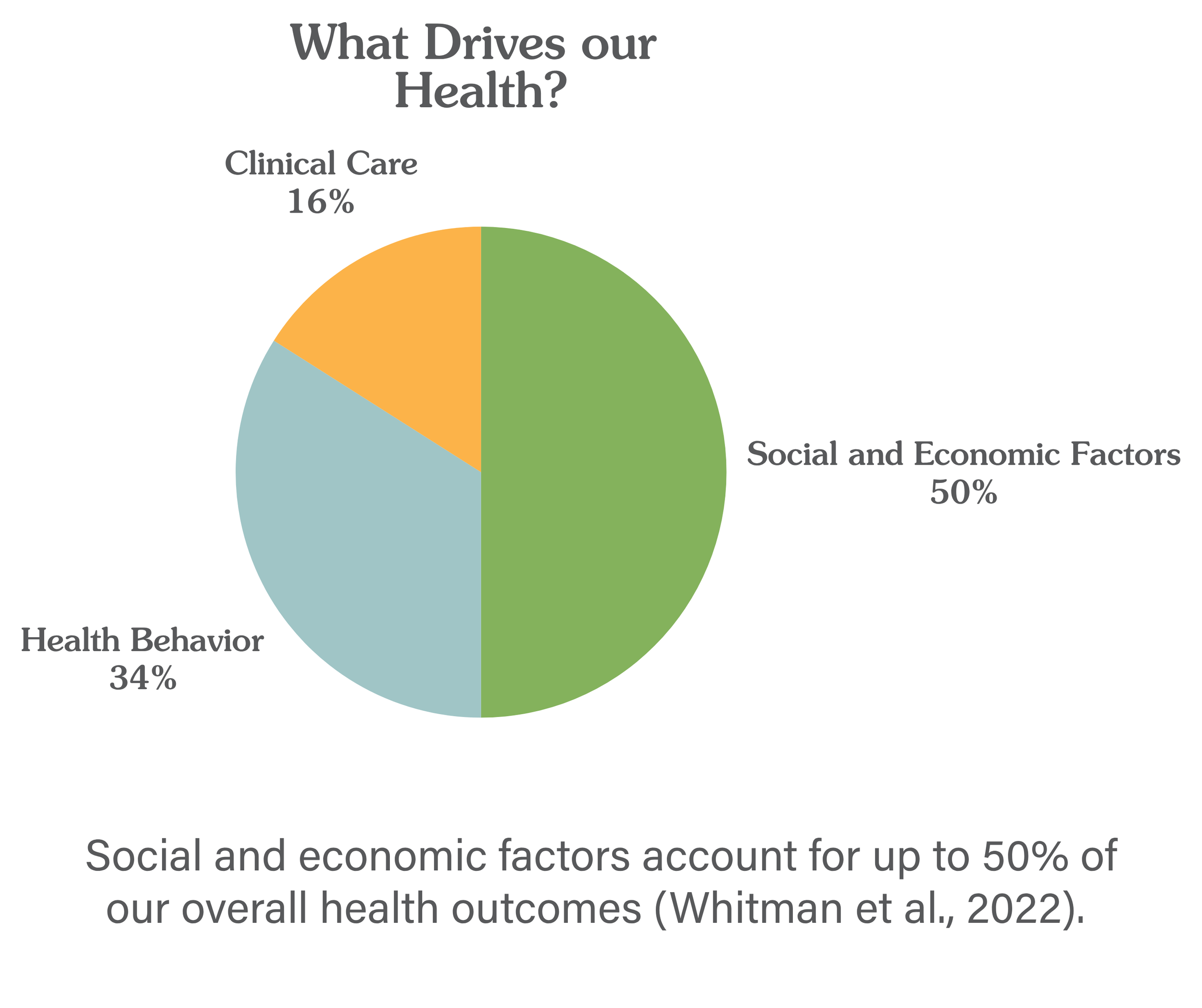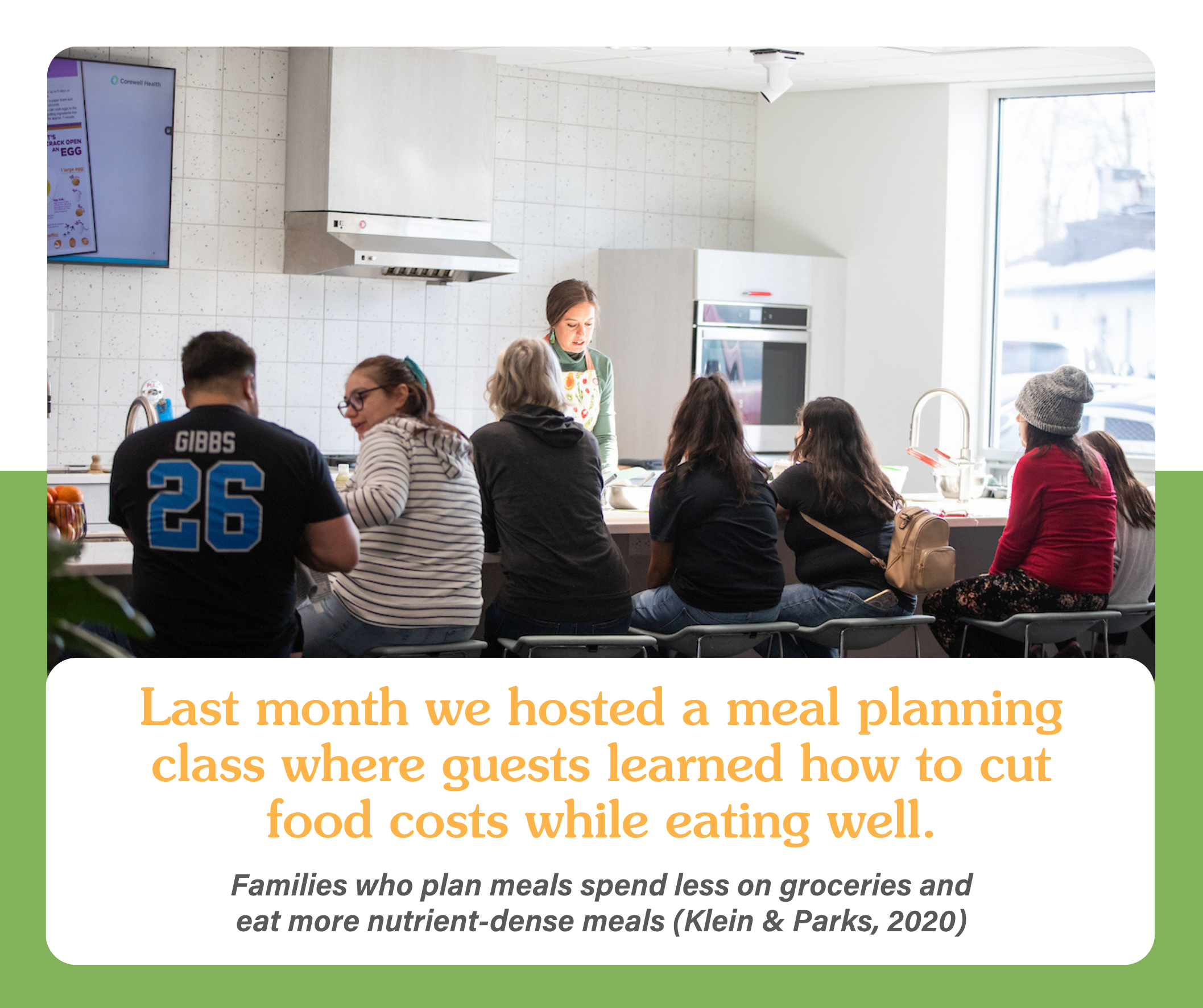Wellness isn’t just about feeling good—it’s about having the resources and knowledge you need to thrive in every area of life!
Wellness begins with access to the essentials we all need to thrive: nutritious food, financial stability, and a supportive community.
At Community Action House, we know these needs are deeply connected. That’s why our Food Club, Healthy@Home, and Financial Wellness programs work hand-in-hand. Together, they improve physical and mental health, reduce financial stress, and build momentum toward long-term progress. And when neighbors have what they need to care for themselves and their families, it strengthens the well-being of our entire community.
What is Wellness?
Wellness is more than the absence of illness. It’s about the presence of resources, stability, and the opportunity to live a full and healthy life.
Our wellness is shaped not just by personal choices, but by the systems and environment around us. Access to healthy food, safe housing, education, and reliable transportation all impact our ability to improve our wellness. When these building blocks are missing, improving our wellness becomes more difficult.
Healthy Food is a Foundation For Wellness
At our Food Club, neighbors have access to affordable, fresh, healthy food their families love. This model not only improves health and wellness by putting nutritious food within reach, it also reduces financial strain—freeing up room in the budget for rent, bills, and savings.
But access to healthy food is only the first step. Confidence in the kitchen is a powerful form of improving our wellness—and not everyone grows up learning how to cook healthy meals. Without guidance or support, that next step can feel daunting.
That’s where our Healthy@Home program comes in. This program offers free, hands-on cooking classes where guests of all ages build confidence in the kitchen, explore new recipes, and connect with a community of support.
From family-friendly popsicle making workshops to classes about healthy eating for the holidays, our Healthy@Home classes equip families with the knowledge, skills, and tools needed to eat healthy meals together at home.
What’s on Our Plates Often Depends on What’s in Our Wallets
When money is tight, healthy food is often the first thing to go. That impacts not only physical health, but also adds stress and makes it harder to plan for the future. Our finances shape our food choices, and both are deeply tied to our overall wellness.
Improving our financial wellness can reduce stress, improve mental health, and make healthy choices more accessible (Columbia University Irving Medical Center, 2024). But just like physical health, financial health is built over time—and it requires the right tools and support.
Our Financial Wellness team partners with neighbors to build budgets, manage debt, improve credit, set savings goals, and more—laying the foundation for long-term stability and health. When someone creates their first budget, pays down debt, or starts planning meals, they’re doing more than improving their finances—they’re investing in their long-term wellness.
Celebrate National Wellness Month with Us!
Join us for a Healthy@Home Class!
Join us for a Healthy@Home class to brush up on kitchen skills, explore healthy eating, and connect with community!
Pack a Healthy@Home Meal Kit!
Stock our Food Club shelves with simple, easy, fresh meals for families to cook together at home!
Attend a Financial Wellness Class!
Join us for a Financial Wellness class this month and build a brighter financial future!
References
Columbia University Irving Medical Center. (2024). The Link Between Health and Financial Well-Being. https://www.cuimc.columbia.edu/news/link-between-health-and-financial-well-being#:~:text=Financial%20well%2Dbeing%20can%20impact,%2C%20income%2C%20and%20mental%20health
Klein, L., Parks, K. (2020). Home Meal Preparation: A Powerful Medical Intervention. National Library of Medicine. 14(3), 282-285. 10.1177/1559827620907344
Whitman, A., De Lew, N., Chappel, A., Aysola, V., Zuckerman, R., Sommers, B. D. (2022). Addressing Social Determinants of Health: Examples of Successful Evidence-Based Strategies and Current Federal Efforts. Department of Health & Human Services. https://aspe.hhs.gov/sites/default/files/documents/e2b650cd64cf84aae8ff0fae7474af82/SDOH-Evidence-Review.pdf







